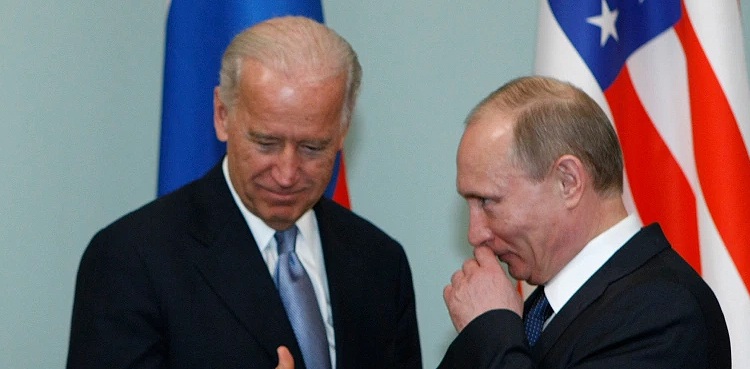Russia doesn’t really need diplomatic ties with the West after it imposed sanctions on Moscow over Russia’s military operation in Ukraine, former president and top security official Dmitry Medvedev said on Saturday.
Medvedev, writing on social media, said it was time to “padlock the embassies.”
He said Moscow would continue its operation in Ukraine until it achieved goals defined by President Vladimir Putin.
Related: Russia will impose retaliatory sanctions on West
Kremlin spokesman Dmitry Peskov yesterday said that the sanctions imposed by West would cause problems for Russia but they would be solvable, as it had reduced its dependence on foreign imports.


He declined to comment on how long Russia’s invasion of Ukraine, which prompted the sanctions, would last and said questions about Ukrainian civilian deaths should be referred to the military.
US President Joe Biden hit Russia with a wave of sanctions on Thursday after Moscow invaded Ukraine, measures that impede Russia’s ability to do business in major currencies along with sanctions against banks and state-owned enterprises.
The sanctions are aimed at limiting Russia’s ability to do business in dollars, euros, pounds and yen. Among the targets were five major banks, including state-backed Sberbank and VTB, as well as members of the Russian elite and their families. Sberbank, Russia’s largest lender, will no longer be able to transfer money with the assistance of U.S. banks.
The White House also announced export restrictions aimed at curbing Russia’s access to everything from commercial electronics and computers to semiconductors and aircraft parts.
The EU, on the other hand, added Russian President Vladimir Putin and Foreign Minister Sergei Lavrov to its sanctions list over Moscow’s invasion of Ukraine, the bloc’s foreign policy chief Josep Borrell confirmed.The step was agreed in an EU foreign ministers’ meeting in Brussels held to formally adopt a broad package of sanctions on Russia that Borrell has called the “harshest” ever drawn up by the bloc.
The package, approved by EU leaders in an overnight summit, hammer Russia’s financial, energy and transport sectors, and curb the ability of Russians to keep large amounts of cash in EU banks.
It also expands the number of Russians on the EU’s list of sanctioned individuals barred from entering the bloc’s 27 countries and whose EU assets are blocked.
Two EU officials, speaking on condition of anonymity, said Germany and Italy had resisted putting Putin and Lavrov on the EU’s list. The only other leaders on it are Belarus strongman Alexander Lukashenko and Syrian President Bashar al-Assad.
But that reluctance faded on Friday as Russian forces kept up their pounding of several Ukrainian cities and tightened their noose on the capital Kyiv, as tens of thousands of Ukrainians fled their country.
“We are hitting Putin’s system where it has to be hit, not only economically and financially, but also at the heart of its power,” German Foreign Minister Annalena Baerbock said as she arrived for the Brussels meeting.
Britain was to follow the EU, saying it was planning “imminent” sanctions on Putin and Lavrov.


Leave a Comment